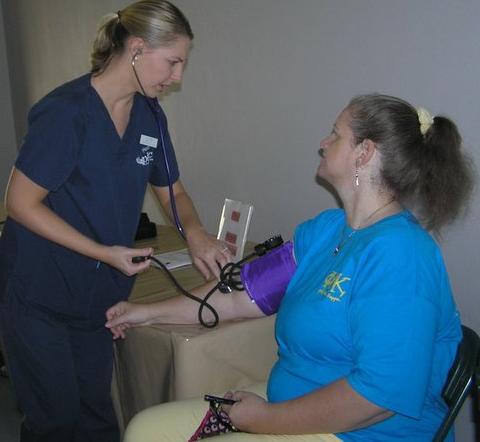How to get Affordable Medical Insurance
How to Self Insure
With the high costs of healthcare and recent legislation passed in the United States, it is wise to look at other options to cover your medical needs. Continue reading on to find out about some innovative ideas to keep your family healthy with affordable medical insurance.

Self Insurance?
Would you give self insurance a try?
Health Insurance, Prescription coverage, and Dental Insurance
With all the debate and controversy regarding health care insurance, the innovative person or group can come up with a better plan. Partial self insurance may be beneficial during these tough times. Small business and corporations alike have self insured for years. What about a household or community self insurance plan? You can include your family, your pets, your neighbors and friends. Each person has the same type of coverage, so all premiums are the same for everyone.
Here is what I propose:
- Shop for and purchase an inexpensive major medical plan that covers inpatient and outpatient surgery, hospitalization, emergency services. Choose the policy with the lowest monthly payment even if it requires a high deductible. You must also be sure the policy pays a minimum of 90%. You may find a prescription plan and dental insurance at very low prices. It is recommended you purchase those as well.
- The monthly premium required to pay for health insurance through a private company is the amount you have to spend on all medical issues. Therefore, deduct the monthly premiums paid for the major medical and hospitalization, dental insurance, and a prescription plan from the original amount allocated for insurance. Invest the remainder in a community, interest bearing account.
- Visit your primary doctor on a regular basis and get to know the staff, especially if you have a chronic condition. Many times, when a doctor knows you are uninsured by a major company, they will discount your fee, especially if you are required to make several appointments during the year. It never hurts to ask. Knowing your doctor and staff will prove to be beneficial when prescriptions need to be called in and they are less likely to require an appointment with the doctor first.
- Use coupons and promotional offers for medical checkups. Donate blood, find pharmacies with low cost or free prescriptions, take advantage of the free testing in the pharmacy, and utilize the expertise of your pharmacist. Take advantage of free dental exams, eye exams, and free cholesterol and blood sugar tests.
- If you are currently insured, visit your doctor (get a copy of your medical file if you plan to switch physicians), get regularly taken prescriptions filled (3 month prescriptions are less expensive), preventative medical care is much less expensive than waiting for a serious illness.
More Links:
How Self Insurance Saves Money
Major medical insurance can be purchased for under $50 per month. Dental insurance and prescription plans can be found reasonably priced, as well. Let’s say you now have to pay about $500 per person, per month in health insurance premiums. After the deductions of $50 for major medical insurance, $20 for a discounted prescription program, and $10 monthly for pet insurance, that leaves a balance of $420 per month, per person to save and use towards doctor’s visits, lab work and such. When someone is proactive in keeping themselves healthy, the negotiated and agreed upon costs would be covered, paid by this account in cash. When someone needs medical assistance for an injury or illness, you pull the co-pays and additional 10% from this account.

How often do you need to see a health care professional?
- The doctor’s office will usually allow a mutually agreed upon payment plan to be arranged should the full amount be unattainable at the time.
- Many pharmacies offer free or discounted prescriptions. For example, Publix pharmacies offer free antibiotics, and Wal-Mart pharmacies have a discounted generic prescription plan. Walgreens has an inexpensive prescription plan worth looking into.
- Negotiate with your health care providers for discounted preventative health care costs.
- By NOT giving your money to large insurance companies, knowing you will never see it again, are not beneficial or cost effective. Instead, invest in your own household, and your own company. If things go well, it is possible you may be insurable by contributing a minimum premium; another cost saving tool.
- Invest in your own small business (or household) and earn interest. It might be worth hiring a professional stock broker for a short time and extract as much information as possible. Take notes and learn about your investment options.
- Eliminate unnecessary visits by creating a great line of communication with your doctor’s office. If you are known well, prescriptions are called in with no required visit with the doctor. If you have a chronic condition, you will be seeing your doctor on a regular basis anyway.
- Going to the beach for the salt air, or taking a steamy shower to break up lung congestion are a few other things you can attempt before you make an expensive doctor’s appointment. Herbs, vitamins, minerals, and other supplements should always be discussed with your doctor. Always drink lots of water to flush out any ailments that are attacking you. Natural remedies like lemon juice, honey, sea salt, massage oils, scented candles, aloe plants, and crushed ice in a Ziploc bag are ways to treat non-emergency injuries and illnesses. A heating pad, over the counter cold, cough, and sinus medication, or ibuprofen, acetaminophen, naproxen, and even aspirin can be helpful, if cleared by your doctor.
- Have a first aid kit handy and updated in your home and in your vehicle at all times.
- In many states, you can have a Health Savings Account (HSA) that is deducted from an employee’s paycheck, pre taxed! The employees will be saving money on income taxes in this respect.

More Benefits to Becoming Self Insured
- The decisions made by you and you are the last word. No person has rights to your medical records except for your doctor and any other person you authorize, unless a legal subpoena is issued,
- The dollar amount, or premium, would be equally charged on a per person basis regardless of age, occupation, or pre-existing conditions; since all coverage is equally administered.
- No “referrals”, no “network, and no co-pay (unless you arrange that with your employees or teenagers).
- I recommend that if you do consider this idea, be sure to get a complete physical, discuss cost options with your doctor, and have a thorough blood work up before you leave your insurance company. Remember, proactive medical care is much less expensive.
I’m happy you the time it took to read my hub. Your opinion is always welcomed and appreciated. Please feel free to leave a comment or suggestion in the comments section.
"Be kind to one another" ~ Ellen
God Bless You ~ Margaret Sullivan









